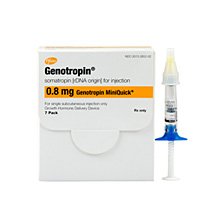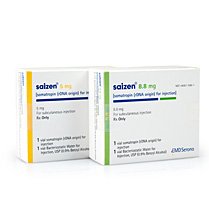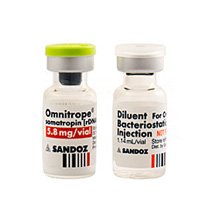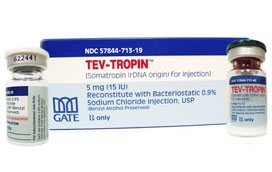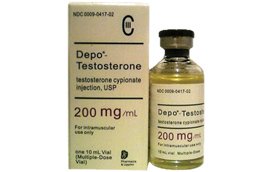Testosterone and Body Fat: How Testosterone Influences Weight

Testosterone is an androgen hormone that helps promote muscle and lean body mass. If testosterone levels get too low, muscle can decrease, and fat can increase. In this review of testosterone and body fat, we examine the relationship between testosterone and body fat percentage and how testosterone and fat mutually influence one another. We will also look at how testosterone therapy can help adults with low testosterone improve their symptoms and lose weight at the same time.
If you have low levels of testosterone, overweight concerns may also increase your risk of metabolic syndrome, type 2 diabetes, and cardiovascular disease. Male or female, low testosterone can lead to infertility, osteoporosis, dementia, high LDL cholesterol, and other significant health concerns.
With low testosterone, fat effects on your heart, and your joints weaken your body, which has to bear a heavier load. Body mass index (BMI) assesses how much body fat a person has. Having a BMI between the 25 and 30 range means a person is overweight. Anything above 30 BMI falls into the obese category.
The connection between testosterone and body fat is one to understand as low testosterone can increase the risk of obesity and other health concerns.
How Does Testosterone Influence Weight?
The relation between testosterone and body fat is somewhat complex, with each influencing the other. In the end, it becomes a circular dance, with low testosterone increasing fat retention, and obesity further lowering testosterone levels.
How does this connection begin, and how do you stop it?
The testosterone effect on body fat is multifold, as shown below:
- Testosterone helps to maintain insulin sensitivity to promote the proper use of blood glucose. When testosterone levels decline, the body stores glucose as glycogen in the liver, causing an increase in fat retention.
- Low testosterone reduces energy and cardiac capacity for exercise – lack of exercise results in reduced calorie expenditure and fat storage.
- Fatigue associated with low testosterone often causes a person to consume more food for added energy. The extra calories wind up as stored fat.
- As testosterone levels fall, cortisol levels climb, often inhibiting sleep at night. Lack of sleep reduces the amount and influence of testosterone on metabolic activities that support fat burning and weight loss. Cortisol (stress hormone) opposes testosterone, keeping its levels low.
- Testosterone exerts a direct influence on metabolic functions to help turn food into usable energy.
As you can see, testosterone helps fat loss in many ways, both directly through proper metabolism, and indirectly through increasing energy to promote caloric usage through exercise.
Why Does Low Testosterone Lead to More Body Fat?
With low testosterone, body fat distribution tends to gravitate towards the abdomen, increasing fat storage around the internal organs. It is this fat that is dangerous for the body.
Testosterone helps to reduce inflammation in the body. Weight gain is often associated with increased inflammation, a factor in heart problems in older adults. Proinflammatory mediators and adipokines that originate in adipose tissue may suppress the critical hypothalamic-pituitary-gonadal axis that regulates testosterone production. As a result of low testosterone, fat gain continues to increase, and the cycle continues.
Another factor in low testosterone and body fat is an increase in estrogen levels. Women naturally have higher estrogen and lower testosterone levels than men. They also have a higher fat to muscle ratio, whereas males have more muscle than fat. It is the hormone estrogen that helps promote the storage of fat in the body.
The connection here is that the body naturally converts excess free testosterone into estradiol, the primary form of estrogen. With increased amounts of estrogen in the bloodstream, testosterone declines, and fat increases. How that happens will be explained in more detail in the next section.
How Does Excess Body Fat Lower Testosterone?
We just learned that low testosterone often means that the body has higher levels of estrogen. Below, we outline the body fat effect on testosterone:
- Some of the free testosterone in the body undergoes aromatase conversion into estradiol. Aromatase is an enzyme produced by fat cells, which further lowers testosterone. As estrogen levels increase, the body retains more fat. Therefore, it creates more aromatase, which converts more testosterone into estradiol. Testosterone levels lower, and estrogen levels climb. Higher estrogen levels exert a negative feedback loop in the brain, telling it that the body does not need more testosterone, so the production of gonadotropin-releasing hormone, and, subsequently, luteinizing hormone decline.
- Another aspect of low testosterone with high body fat is that when you carry around excess fat, your caloric expenditure decreases. Muscle burns calories faster than fat. Low testosterone decreases muscle mass and increases fat mass, reducing caloric expenditure.
- People who are overweight tend to get less exercise than their thinner counterparts. Less activity means fewer calories being burned.
These connections between testosterone and body fat become part of a vicious cycle, much like being on a hamster wheel. Dieting gets a person nowhere most of the time because, with low levels of testosterone, body fat and lean muscle tend to decline when on a calorie-restrictive diet. However, as we will explain later down this page, testosterone therapy can help protect lean muscle, targeting only fat mass for weight loss.
Can Losing Weight Increase Testosterone?
Losing weight is one of the best ways to increase testosterone. When looking at the testosterone abdominal fat connection, we find that reducing abdominal fat decreases the production of aromatase. As aromatase levels decline, the body converts less testosterone into estradiol. The result is a decrease in estrogen and an increase in testosterone.
The connection between testosterone levels and body fat is so powerful that even a slight decrease in abdominal adiposity can increase testosterone levels. And, as testosterone levels increase, a person will discover more energy to engage in exercise. Even the act of taking a fifteen-minute walk once a day can increase caloric expenditure and contribute to a gradual weight loss.
Speaking of gradual weight loss, fad diets do not offer positive benefits to boosting testosterone levels. Rapid weight loss often results in rapid weight gain once the diet stops. That yo-yo effect does more harm than good for hormone production. The best way to increase testosterone and body fat burning is through a healthy dietary and exercise program.
Can Testosterone Therapy Help Decrease Body Fat?
We now turn our attention to testosterone therapy as a way to reverse obesity and fat retention. Those who can benefit from using exogenous testosterone are individuals who have other symptoms of Low T, along with clinically verified low testosterone lab results. With the use of supplemental testosterone, fat loss begins to show within two to three months.
Studies have shown that with exogenous testosterone, decreased fat mass occurs without the lean muscle loss that we often find with fad diets. Testosterone promotes lean muscle mass growth through protein anabolism. Rather than losing both fat and lean mass, dieters who also receive testosterone therapy lose only fat mass while increasing lean muscle.
Through these testosterone fat burner benefits, a person’s overall physique will gradually change from soft and flabby to firm and toned. Omitting carbohydrates, sugar, and processed foods, and opting instead for more lean protein, fruits, and vegetables will speed the actions of testosterone therapy on weight loss.
To learn more about testosterone and body fat, please contact Greenberg Health hormone clinic for a free consultation by phone.


















 Norditropin
Norditropin